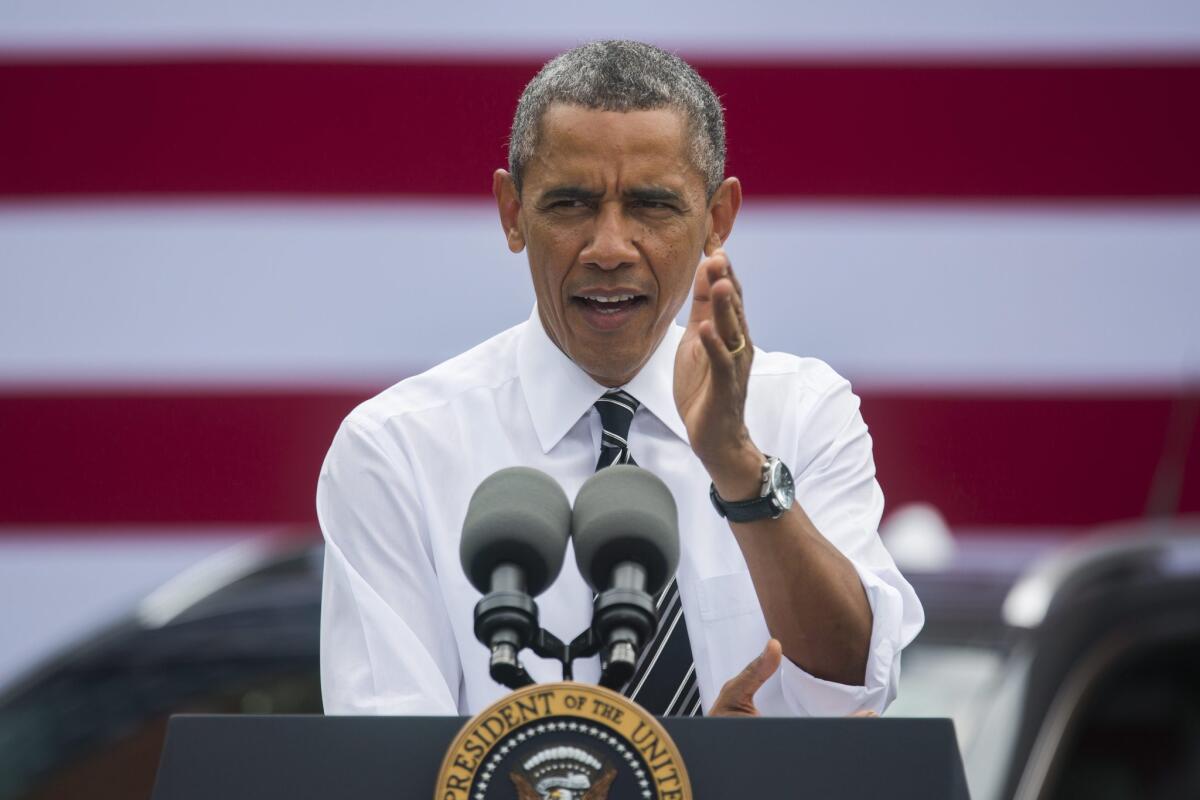Editorial: What Congress should do to fix the Highway Trust Fund

- Share via
The House and Senate have put forth plans to temporarily fill the Highway Trust Fund, which is used to pay for road, bridge and public transit construction but is expected to go broke this summer. Though the details differ in the two proposals, the result is the same: Congress would buy another 10 months or so of solvency, after which the fund would be in the same bad position next year when the money again threatens to run out.
While a temporary fix is better than no fix, members of Congress shouldn’t fool themselves. Neither proposal offers a viable solution to the problem.
When Congress created the Highway Trust Fund in 1956, it was designed to be a self-sufficient, user-supported fund. Users of the roads would pay gas taxes at the pump that would finance transportation infrastructure. The problem is, Congress hasn’t increased the taxes on gas and diesel for two decades, while the cost to build and maintain the nation’s network of roads and transit has gone up dramatically. Drivers still pay 18.4 cents a gallon for gasoline and 24.4 cents for diesel. In recent years, as the fund has proved insufficient to cover the government’s costs, Congress has allocated general fund money to bridge the gap.
Now, rather than using common sense and gradually increasing the gas tax to return the fund to self-sufficiency, Congress has proposed a patchwork of money transfers and illusory revenue sources completely unrelated to transportation. The House bill would come up with about $10 billion by taking money currently dedicated to cleaning up leaky underground storage tanks, tapping various fees and allowing “pension smoothing,” under which companies can postpone pension payments. When companies defer pension contributions, which are tax deductible, they pay higher tax bills — until the companies have to make up all those deferred payments. So Congress is essentially borrowing against future revenue to keep the trust fund solvent now. The Senate proposal is similar, but it also seeks better compliance with tax laws to generate more money.
House and Senate members have described their proposals as stopgap measures to keep federal dollars flowing to transportation projects, many of which are already under construction, while Congress comes up with a long-term funding plan — presumably after the November election. But it’s hard to imagine legislators being any more inclined to make difficult choices in six months than they are today. They would do better to bite the bullet now and raise the fuel tax.
Follow the Opinion section on Twitter @latimesopinion
More to Read
A cure for the common opinion
Get thought-provoking perspectives with our weekly newsletter.
You may occasionally receive promotional content from the Los Angeles Times.









